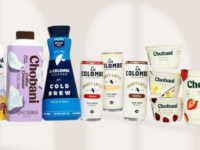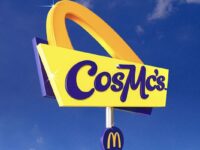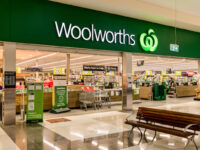 Australia’s competition regulator will oppose the proposed takeover of Woolworths service stations by energy giant BP, as the acquisition would “substantially lessen competition” in the retail supply of fuel.
Australia’s competition regulator will oppose the proposed takeover of Woolworths service stations by energy giant BP, as the acquisition would “substantially lessen competition” in the retail supply of fuel.
BP supplies fuel to approximately 1,400 BP-branded service stations throughout Australia, setting fuel prices at roughly 350 of them, while Woolworths currently operates 531 sites and has 12 sites in development.
“We are disappointed with the ACCC’s decision,” Woolworths said in a statement. “We have worked closely over many months with BP and the ACCC through an extremely rigorous and demanding process.”
BP and Woolworths Group said they will assess their options over the coming period.
“Woolworths is a vigorous and effective competitor which has an important influence on fuel prices and price cycles in many markets throughout the country,” said Australian Competition and Consumer Commission (ACCC) chairman Rod Sims.
“Many consumers seeking out cheaper petrol will head to Woolworths petrol stations.
“BP prices are significantly higher on average than Woolworths prices in the major capital cities (see charts below). BP generally increases prices faster than Woolworths during price increase phases, and is slower to discount during the price discounting phase of cycles,” Sims said.
The ACCC said that fuel prices will likely increase at the Woolworths sites if BP acquires them and other retailers would then face less competitive pressure.
“The bottom line is that we consider motorists will end up paying more, regardless of where they buy fuel, if this acquisition goes ahead.”
“This acquisition will likely affect metropolitan price cycles by making the price jumps quicker, larger and more coordinated. Reduced competition will also mean that prices will not fall as far, or as quickly, in the discounting phase of the cycle,” Sims said.
In a separate decision, the ACCC has also decided to grant applications from Woolworths and BP, subject to conditions, in regards to shopper docket and rewards loyalty program. BP and Woolworths must limit shopper docket and loyalty scheme discounts to no more than four cents per litre (in total per fuel purchase) and Woolworths is not permitted to fund more than two cents of the discount.
In forming its view, the ACCC conducted extensive data analysis of all major retailers’ fuel prices to determine the effect that BP and Woolworths have in both local and metropolitan-wide areas. The ACCC considered whether the competition concerns in metropolitan and local areas could be addressed by divesting sites. Sims called its nine-month review of the deal “the most significant merger investigation and decision the ACCC has considered in 2017.
“The ACCC has determined that the underlying concerns arising from the proposed acquisition would not be addressed by the divestments proposed by BP,” he said.
The chart below, which was published in October when the ACCC released its study into the Brisbane petrol market, highlights the difference between each major retailer’s average regular unleaded petrol (RULP) price and the market average RULP price in Brisbane in the period 1 January to 30 April 2017.
This story was first published on Inside Retail.
















